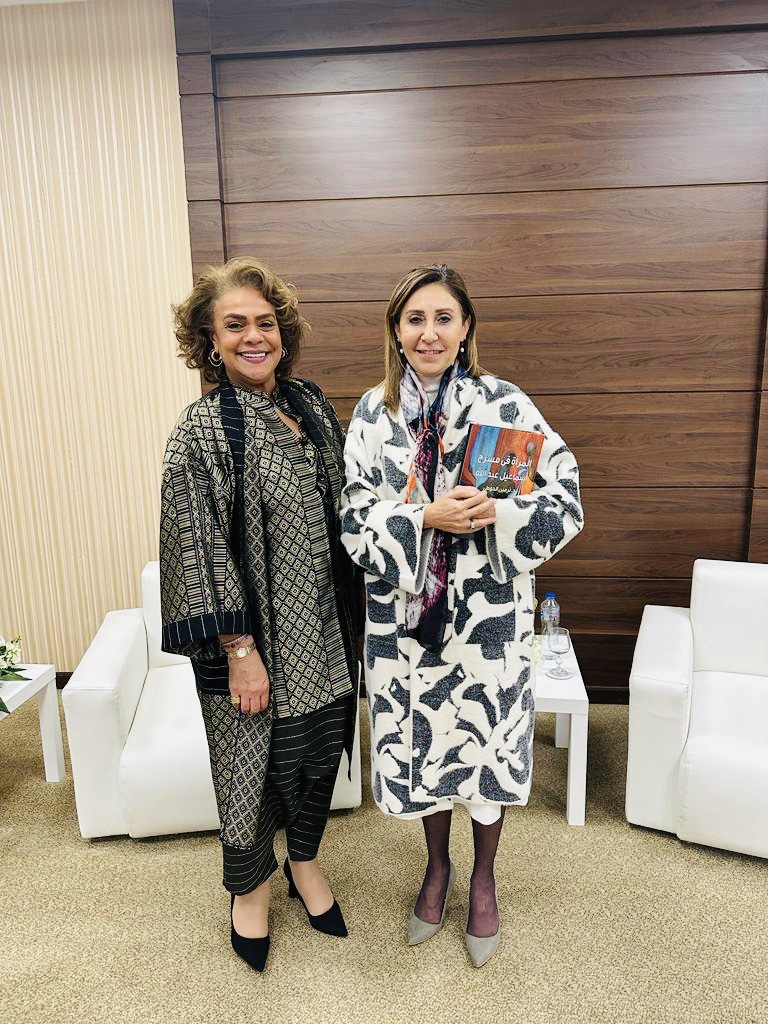Author Nermin al-Houti’s latest book touches on women representation in Arab theater
Eadaat Publishing House recently published The Women in Ismail Abdullah’s Theater, the latest book by author Nermin al-Houti.
Divided into three chapters, the book comprises a total of 353 pages.
The first chapter covers the early beginnings of women’s representation in theater throughout history, beginning in ancient Greece and then through medieval and Arabic theatre, before ending with an overview of theater in the Gulf.
The second chapter entitled “Ismail Abdullah Theater” begins with an overview of the life of Ismail Abdullah and the theatrical creativity of his career. The author carefully analyzes his choice of titles and character names alongside the dramatic construction of his stories and how Abdullah’s writing was influenced by local beliefs and poetry.
The chapter then ends with an overview of Abdullah’s work in which he addresses women’s issues within the textual structure of the play.
And in the final chapter, Houti assesses the image of women in Ismail Abdullah’s theater work.
Speaking to Egypt Independent, Houti said her reason for focusing on Abdullah’s work is her desire to present an integrated work about his characters.
She explained that the first thing that caught her attention about Abdullah was his play Al-Boshiya.
The title, according to Houti, refers to a piece of soft cotton fabric worn by women in front of their faces when they are around men.
Houti said she was very impressed with the actress starring in the 2011 play, who she portrayed with “competence and merit.”
Houti added that she already has a book about Naguib Mahfouz called Women for Naguib Mahfouz. This led her to focus on another area and so Houti decided to focus on theater in the Gulf and specifically in the United Arab Emirates.
Theater, whether in Egypt or in the Arab world at large, does not adequately portray the depths of a woman’s life, Houti noted. She explained that most plays, whether written by a man or a woman, only depict the superficial problems women face, and shy away from serious issues such as early childhood trauma, rape, marital problems, divorce, etc.
She attributes this to the fact that these plays, which are funded by the private sector, aim more to generate financial gain than to highlight societal ills.
Therefore, Houti proposed several solutions on how she thought theater could improve.
The first would be to give more attention to school theaters so that children can cultivate a love of the medium from an early age and prepare students for eventual entry into state theater. Next, she suggested choosing themes with strong scenarios to be presented in private theaters and eventually dedicating theater festivals to discuss women’s issues.

Houti’s biography
A graduate of the Higher Institute of Dramatic Arts, Houti chose the subject of the book based on her extensive experience from her current position as Associate Professor in the Department of Criticism at the Higher Institute of Dramatic Arts in Kuwait.
She holds a PhD in Philosophy of Literary Criticism and is a member of the Association of Writers and the Journalists Association and a member of the Literary Arbitration Commissions for Theater or Poetry in Kuwait and other Arab countries.
She has been selected as a panelist at various major cultural events and has participated in several seminars, most recently at the Cairo International Book Fair 2023.
Houti, the daughter of literature professor Fawzia Mekkawi, has followed in her mother’s footsteps by leading debates and exploring women’s issues.